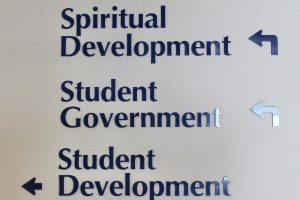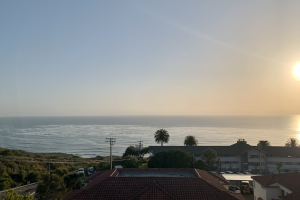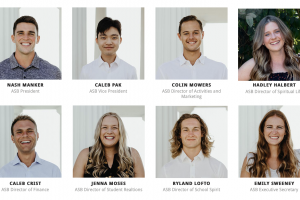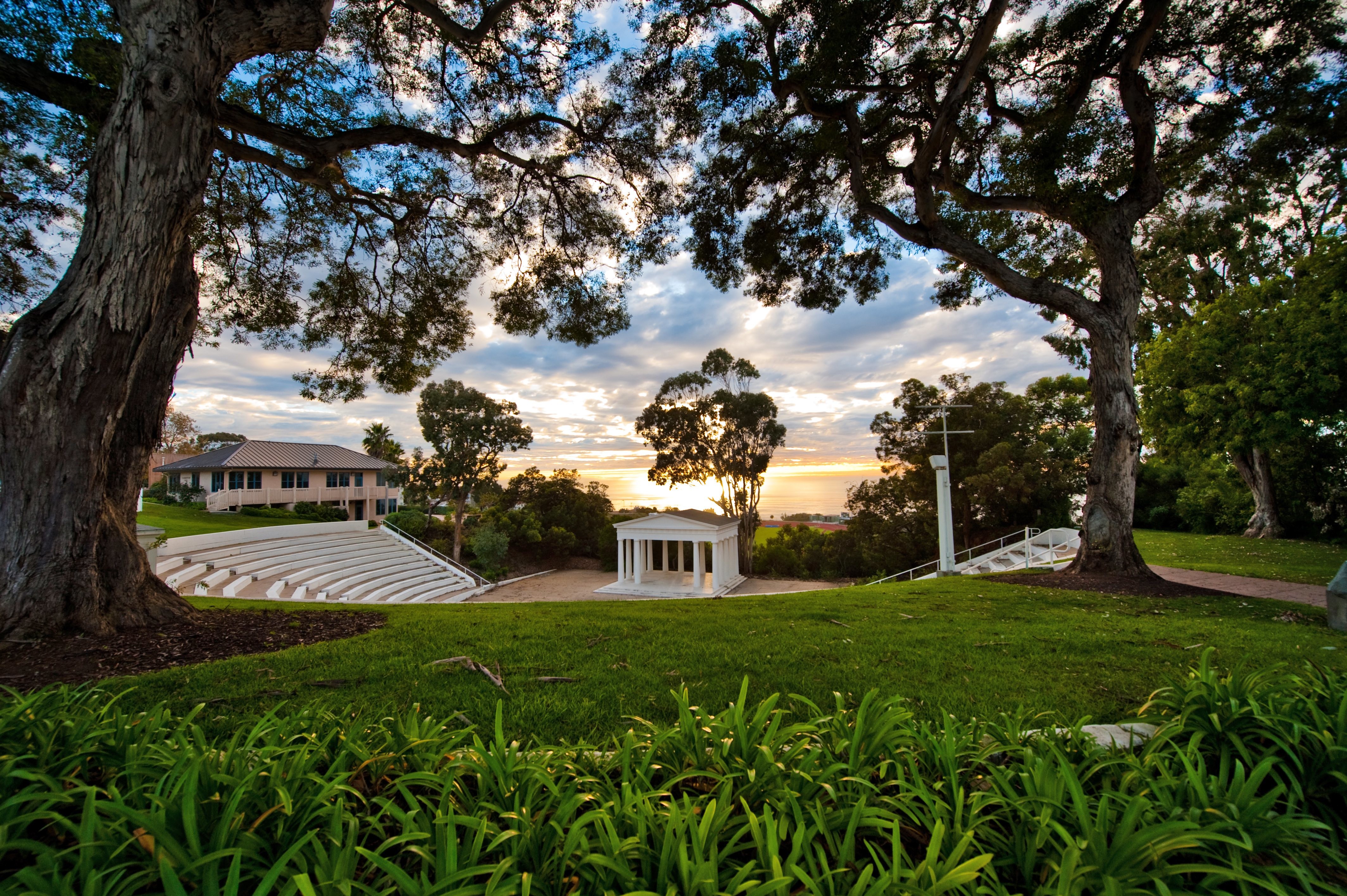A student-lead diversity forum revealed that students feel there is still much work to be done in making PLNU a welcoming environment to students of all backgrounds.
Members of various MOSAIC clubs spoke of their experiences as minority students and why diversity should matter to all students on April 24 in Cunningham Dining Room.
The forum and following panel was hosted by MOSAIC, the Center for Justice & Reconciliation and International Ministries. Jeffery Carr, chief diversity officer opened the discussion with his view on the importance of diversity.
“Diversity completes us,” Carr said. “It allows us to see ourselves in a different way and become fuller, unified instruments of God.”
Carr was a leader on the Black Student Union’s civil rights pilgrimage that took place over spring break. BSU President Allison Kendrix summarized the trip, which included stops at a historically black college, the MLK Center, the Rosa Parks Museum and the Lorraine Hotel where MLK was killed. Kendrix depicted the group’s experience in Selma, Alabama where they participated in a commemorative march in honor of the 1965 marches that marked the peak of the Civil Rights Movement.
“It’s much more real to be there and connect with members of the community who were in the original Selma march, to meet people who had been attacked by dogs or policemen as they tried to march,” said Kendrix. “It makes you appreciate the privilege of their work we have in the fact that we are now allowed to march without being attacked.”
The march in Selma led to a group time of sharing personal experiences that BSU members call the “Selma Soul Night.” The conversations that night centered on the students’ struggles with racism and living as a minority. Sophomore Molly Murphy considers it one of the best moments of her life to be part of this communal sharing.
“It’s extremely humbling and honoring for people to share honest stories, hurts and struggles in a loving, non-attacking way,” said Murphy. “I grew up in a homogenous community and was unaware of the racial issues that are still present today. They were so full of grace toward me as I listened that night and tried to understand their experiences; there was no bitterness or condemnation.”
BSU Board Member and future Vice President Ebanezare Tadele spoke openly of his mixed feelings toward the PLNU campus and its treatment of minority students.
“It’s a heavy burden to feel like your thoughts aren’t heard,” Tadele said. “As Christians we have this ideal of how to deal with different issues, but we often miss the mark. Our goal is to make sure that what we want to be is actually what we are.”
Tadele went on to compare his “love-hate relationship” with PLNU to buying a used car.
“At first, everything seems perfect, exactly what you need, and you’re excited…until you drive off the lot and realize some things are missing,” Tadele explained.
Tadele expressed how he still feels anxiety when he comes into the cafeteria, similar to the way a new student feels. Other BSU members spoke about how some students struggle just to come to class and even of some who have left the school altogether. Members attribute this to the issue of internalized racism within the educational system.
“Even if we don’t understand their insecurities or don’t think we are contributing to this atmosphere, we can’t deny that their feelings are valid” said Kendrix.
The testimonies given by the panelists highlighted the need for continued progress in achieving equality for all. The diversity forum was meant to be a small step in raising awareness and opening the door for more “Selma Soul Night” conversations.
“We can’t blame people for their ignorance if they’ve never been told,” said Tadele.
Junior BSU member Keana McGrath recalled her visit to Birmingham from the perspective of a white student dealing with the reality of what white people have done in the past.
“We are still ignorant, and we let race define us,” said McGrath. “Letting white burden define me is another way of letting race define us. This isn’t just an issue of black or white. It’s the problem of evil, and it doesn’t only come in colors or shades. We have to fight it with love.”
Carr challenged students to notice the things of historical significance that have shaped our society that we take for granted.
“After seeing it, we know that we each have a responsibility. There’s still more work to be done,” said Carr, “Be prepared to hear not only with your ears, but also with your heart as you listen to those around you.”






